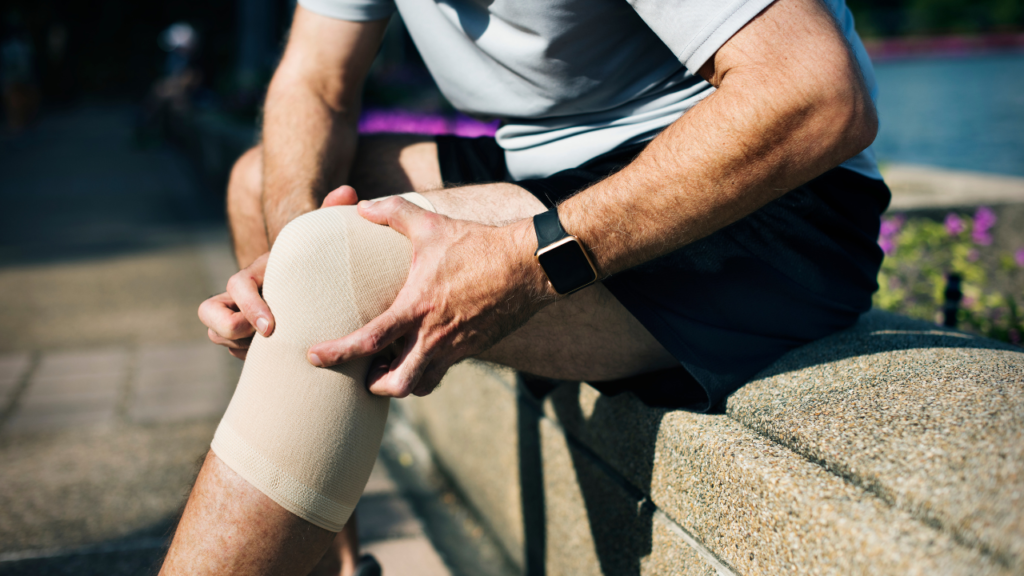The duration of knee replacement surgery recovery varies based on factors like age, overall health, and how closely patients follow post-operative care instructions. For most people, knowing what to expect during recovery helps them prepare mentally and physically for the healing process. In this detailed guide, we’ll outline the knee replacement surgery recovery timeline, key milestones, and practical tips to enhance recovery.
Table of Contents
ToggleUnderstanding Knee Replacement Surgery
Knee replacement surgery (medically known as knee arthroplasty) involves replacing a damaged knee joint with an artificial implant. This procedure is typically recommended for those with severe arthritis, chronic joint pain, or mobility limitations. Although the actual surgery usually lasts only a few hours, the full recovery period can take anywhere from several weeks to several months.
Key Factors That Influence Recovery Time
Age and general health – Patients who are younger and in better physical condition tend to heal more quickly.
Type of procedure – Partial knee replacements may have a shorter recovery than total knee replacements.
Commitment to rehabilitation – Consistently attending physical therapy sessions promotes faster healing.
Pre-surgery fitness level – Stronger muscles before surgery can lead to better mobility afterward.
Knee Replacement Surgery Recovery Timeline
Week 1: The Immediate Post-Surgery Period
The initial days after surgery are often the toughest, marked by discomfort, inflammation, and restricted movement.
Hospital Stay (1-3 days):
Pain is managed with prescribed medications.
Patients are encouraged to stand and walk with assistance (using a walker or crutches) within the first day.
Simple leg exercises help prevent blood clots.
At-Home Care:
Applying ice and keeping the leg elevated reduces swelling.
Proper wound care is essential to avoid infections.
Gentle physical therapy exercises begin to restore mobility.
Weeks 2-6: Early Healing and Mobility Improvements
During this phase, patients typically notice gradual improvements in movement, though some stiffness and soreness may remain.
Walking & Mobility:
Many transition from a walker to a cane around weeks 3-4.
Walking distance slowly increases over time.
Physical Therapy:
Exercises focus on strengthening the quadriceps and hamstrings.
The goal is to achieve at least 90 degrees of knee flexion by week 6.
Pain Management:
Strong pain medications are often tapered off.
Anti-inflammatory drugs may still be used as needed.
Months 2-3: Regaining Strength and Function
By this stage, most individuals experience significant progress in their recovery.
Driving & Daily Activities:
Patients can typically resume driving once they stop taking strong pain medications.
Light household tasks become more manageable.
Physical Therapy Progress:
Exercises become more challenging with added resistance.
Focus shifts to improving balance and coordination.
Swelling & Discomfort:
Some residual swelling may linger but continues to decrease.
Months 4-6: Nearing Full Recovery
At this point, the majority of patients regain near-normal function.
Returning to Work:
Those with desk jobs may return in 4-6 weeks.
Physically demanding jobs may require 3-6 months before resuming.
Exercise & Sports:
Low-impact activities like swimming and cycling are generally safe.
High-impact sports such as running may still need caution.
Long-Term Care:
Ongoing strength training helps maintain joint stability.
Regular check-ups ensure the implant remains in good condition.
Tips to Accelerate Knee Replacement Recovery Time
Stay Consistent with Physical Therapy – Missing sessions can slow down progress.
Control Pain and Swelling – Use ice packs, compression wraps, and prescribed medications as directed.
Eat a Nutrient-Rich Diet – Foods high in protein, vitamin C, vitamin D, and omega-3s support healing.
Pace Yourself – Overdoing activities too soon can lead to complications.
Use Mobility Aids as Needed – Don’t rush to stop using walkers or canes before you’re ready.
When to Seek Medical Help During Recovery
While some discomfort is normal, contact your doctor if you experience:
Intense pain that doesn’t improve with medication.
Increased redness, warmth, or discharge from the incision (possible infection).
Sudden severe swelling or difficulty breathing (could indicate a blood clot).
Final Thoughts on Knee Replacement Surgery Recovery Time
Recovering from knee replacement surgery is a step-by-step process, with most patients seeing major improvements within 3 to 6 months. By following medical advice, staying active within recommended limits, and being patient, you can regain mobility and enjoy a better quality of life.
If you’re planning to undergo this procedure, discuss your expected recovery timeline with your surgeon for personalized recommendations.

